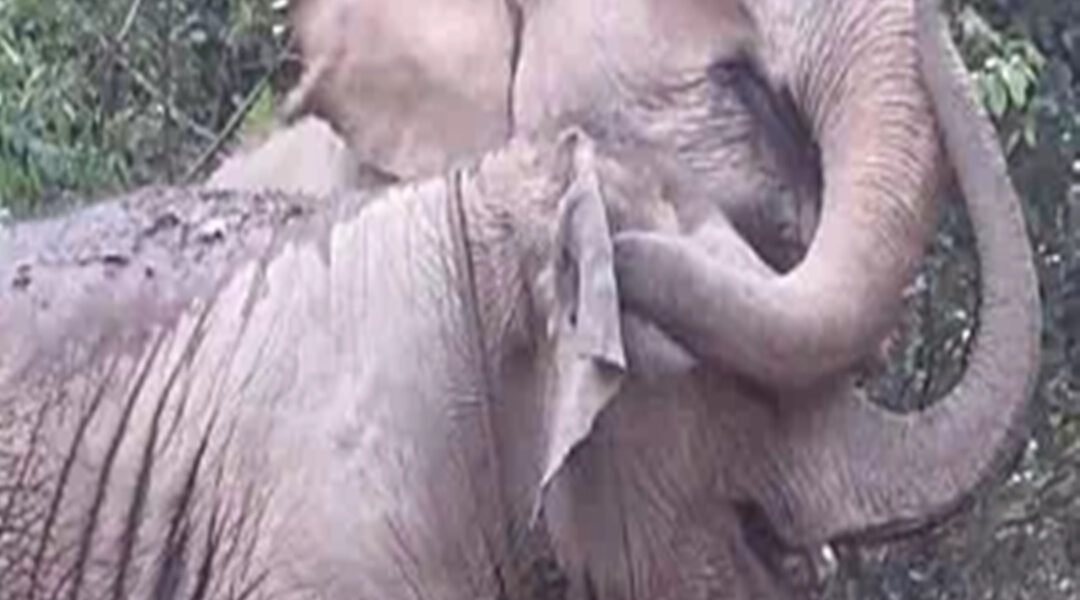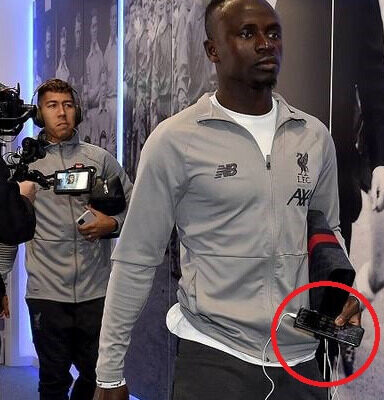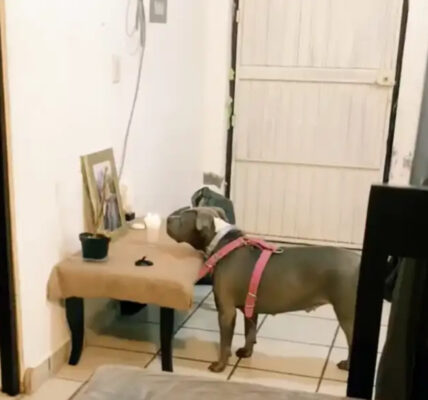In the quiet green of a sanctuary, beneath the rustle of tall trees and the hum of cicadas, a reunion unfolded that no words could truly capture — only hearts could feel.

A young elephant named MeBai, barely out of her calf years, had lived through a childhood no animal should endure. Separated from her mother at a tender age, she was sold into the tourism trade in Thailand. Her life became one of toil, carrying tourists on her back before her body had even finished growing.
Day after day, she labored under the weight of riders, the shouts of handlers, and the loneliness of a life without her mother’s steady trunk to guide her. Too young for such burdens, her health began to fail. She grew thin. Weak. A shadow of the playful calf she once had been.
When she could no longer work, she was discarded — until the rescuers of Elephant Nature Park stepped in.

For the first time in years, MeBai walked on her own terms. No chains. No saddles. No tourists. Just open sky above her and grass underfoot. Slowly, she began to trust again. The caretakers offered food, kindness, and most importantly, freedom. And little by little, she learned that not all humans brought pain.
But one truth lingered in her heart: she still did not have her mother.
That was when the sanctuary staff discovered something remarkable. Mae Yui — MeBai’s mother — was alive. She, too, had been working in the tourism industry at another camp not far away. The thought of bringing them back together set everything in motion.
And then, after three long years apart, the day came.

As Mae Yui was led into the sanctuary, MeBai lifted her head, her ears flapping with sudden energy. She let out a low rumble — a sound that carried across the grass like a question, a memory awakened. Mae Yui answered with a call of her own.
The two moved closer.
Step by step, the distance shrank until at last, trunks reached out and wrapped around each other in a tender, trembling embrace. For elephants, trunks are not just tools — they are lifelines, expressions of comfort, reassurance, and love. In that moment, trunk wrapped around trunk, mother and daughter remembered what had been stolen from them.
They touched. They lingered. They wept in their own language of rumbles and vibrations, the sounds of hearts mending.
Onlookers watched in silence, many with tears in their eyes. What they were seeing was more than an animal reunion. It was proof of memory, of forgiveness, of a bond unbroken by time or cruelty.

Now, at the sanctuary, Mae Yui and MeBai live side by side once again. They wander freely through the grasslands, forage together, and rest in the shade, no longer bound to labor, no longer separated. For the first time in years, they are simply mother and daughter.
And as one caretaker whispered, watching them stand close: “An elephant never forgets. Especially the love of another elephant.”
It is a story not just of survival, but of reunion. A reminder that love, when given the chance, always finds its way back.




